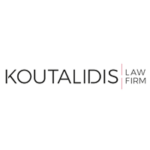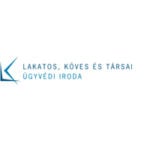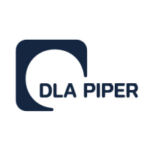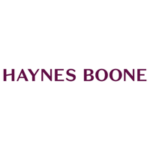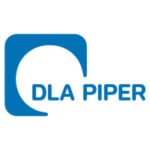-
What are the typical ownership structures for project companies in your jurisdiction? Does this vary based on the industry sector?
Lebanon’s commercial law provides different legal structures for setting up companies. These legal structures consist of the following:
- sole proprietorships;
- general partnerships;
- limited partnerships;
- joint-stock companies (SALs);
- limited liability companies (SARLs);
- holding companies;
- offshore companies; and
- representative offices and branches of foreign companies.
Legal structures vary depending on the industry, the scale of the projects, and the associated risks. Foreign investors conducting business in Lebanon commonly opt for SALs, SARLs, as well as representative or branch offices, based on their specific needs and objectives.
Project companies are set up as joint-stock companies, due to the following factors: The Project Company’s shareholders’ liability is limited to the value of their shares, protecting their personal assets from business liabilities or debts.
The SAL company allows for significant capital investment by issuing shares to multiple shareholders, making it suitable for large-scale businesses and attracting foreign and local investors. The easiness to issue shares in the joint stock company makes it easier to raise capital from the public or private investors compared to other business structures.
Also, shares in an SAL can be easily transferred, allowing flexibility in ownership changes without disrupting the company’s operations.
Finally, foreign investors can hold shares in a joint stock company in Lebanon, with certain restrictions in strategic sectors, facilitating foreign investment.
Also, it should be noted that banking and insurance businesses can only be undertake by join-stock companies.
-
Are there are any corporate governance laws or accounting practices that foreign investors in a project company should be aware of?
The amendments brought by Law No. 126/2019 to the Lebanese Commercial Code introduced key reforms aligned with corporate governance principles, enhancing transparency, fairness, flexibility, and other essential standards. These reforms include the possibility of separating the roles of Chairman and General Manager, strengthening transparency measures, and simplifying formalities in specific transactions. For example, certain transactions no longer require the submission of the social security discharge to be registered before the Commercial Register.
Lebanon operates under a one-tier board system, where the board assumes both management and supervisory roles. The size of the board ranges from a minimum of three (3) to a maximum of twelve (12) members. Amendments to the Commercial Code in 2019 introduced significant changes:
- At least one-third (1/3) of board members must be Lebanese nationals, replacing the previous requirement that the majority of members be Lebanese.
- Board members are no longer required to hold shares in the company.
- The roles of Chairman of the Board and General Manager (CEO), previously combined, have been formally separated.
The Lebanese Commercial Code provides protections for minority shareholders, including access to financial information and the right to challenge board decisions. Companies must comply with disclosure requirements, including maintaining accurate records of financial statements and submitting annual reports to the Ministry of Finance.
The 2019 amendments to the Commercial Code introduced a framework for managing related party transactions (RPTs):
- RPTs require prior approval by the General Assembly based on board recommendations.
- Reports by management and auditors on RPTs must be published in the Commercial Registry.
- Transactions involving loans, guarantees, or securities to third parties are prohibited.
External auditors must be independent, and their tenure is limited to five years for the lead audit partner.
Amendments under Law No. 126 (2019) prohibit external auditors from providing non-auditing services, such as consultancy, to audited companies.
The prohibition extends to shareholders or shareholder groups holding 10% or more of the company’s capital.
Companies operating as banks, the Lebanese Central Bank (Banque du Liban) also provides corporate governance guidance through Basic Decision No. 9382 and Circular No. 106 dated July 26, 2006, which was amended several times by subsequent intermediary decisions. Notably, we cite Basic Decision No. 12689 and Circular No. 142, both dated Octobers 5, 2017.
Additionally, Lebanon has made impressive progress in drafting environmental, social and governance texts, such as:
- Law No. 78/2018 on the protection of air quality, which aims to monitor air pollutants and assess their levels in the Lebanese atmosphere;
- Law No. 44 dated 29 July 2002 on the protection of the environment; and
- Law No. 664/2005 establishing the Mediator of the Republic, whose mission is to ensure effective mediation between the administration and its users; its implementing decree has not yet been ratified.
-
If applicable, what forms of credit support from sponsors or host governments are typically provided?
I. Credit Support from Lenders/Investors
Various forms of credit support can be provided by lenders and investors to fund projects:
- Loans and Debt Instruments: Sponsors, such as banks and investors, can offer traditional loans to finance the project.
- Bonds and Convertible Bonds: Projects may issue bonds, which can be converted into equity under specific terms, depending on the agreement.
- Lease Financing: Leasing arrangements can be used to finance assets essential to the project.
- Equity contributions: Equity contributions can be made by investors who may contribute by purchasing common equity or preferred equity (Investments that come with preferential rights over dividends or claims on assets in case of liquidation.)
- In-Kind Contributions: Sponsors or stakeholders may contribute assets like land, equipment, or intellectual property instead of cash, thereby reducing initial financial outlays.
- Guarantees and Letters of Credit: Projects may attract investors by offering guarantees or securing letters of credit from financial institutions to assure payment or performance obligations.
II. Credit Support from the Government
Governments often provide various forms of credit support to encourage and facilitate project financing:
- Arrangements: The government may engage in various Public-Private Partnerships (PPPs) to facilitate project development and financing. These partnerships often involve providing private sector entities with a range of incentives, such as tax breaks, revenue protections, and, in some cases, partial ownership rights over public infrastructure or services. A prominent example of such arrangements is the Build-Operate-Transfer (BOT) model. In this framework, a private company assumes the responsibility for financing, building, and operating a project over a specified period. During this time, the company recovers its investment, usually through the project’s generated revenues, before eventually transferring ownership and control back to the government
- Sector-Specific Exemptions: Companies operating in certain sectors (e.g., agriculture) or specific regions may benefit from tax incentives designed to encourage investment in underserved areas.
- Holding and Offshore Companies: These companies enjoy an indefinite exemption from Corporate Income Tax (CIT) but are subject to an annual lump-sum tax. This amount was recently revised to LBP 50,000,000 per annum in the November 15, 2022 budget law.
- Investment Incentives under Investment Law No. 360: The Investment Development Authority of Lebanon (IDAL) provides two key incentive schemes:
- Investment Project by Zone Scheme: this scheme offers small and medium-sized projects in designated sectors and geographical zones benefits such as tax exemptions.
- Package Deal Contract Scheme: This scheme is designed for large-scale projects that have a high potential for creating significant employment opportunities. It offers both financial and non-financial incentives, including the immediate issuance of work permits and a reduction in regulatory barriers, making it easier to proceed with the project.
-
What types of security interests are available (and suitable) for a project financing in your jurisdiction?
Lebanese legislation grants personal and in rem guarantees to secure an obligation. All the assets in the patrimony of the grantor can be subject to a personal or in rem guarantee, and they are divided into two categories:
- movable assets, corporal or incorporeal (eg, vehicles, vessels, aircrafts, equipment, products, cash, shares, bank accounts, licenses, insurance, jewelry and valuable goods and IP rights); and
- immovable assets (eg, real estate, land and buildings),
However, as per article 130 of Property Ownership Act, future assets cannot be subject to a security interest in favor of creditors. Creditors will only have a security right on present assets.
In this context, it should be noted that the right related to movable assets takes the form of pledges while the right related to immovable assets takes the form of mortgages.
Based on the above, the following security interests are applicable:
- To assign payouts, royalties or insurance rights in order to ensure the creditor is paid in the event the debtor fails to do so;
- To pledge a movable property, allowing the creditor to retain the said movable property until the settlement of the debt; and
- To grant the creditor a mortgage over real estate owned by the debtor to secure the repayment of the debt. The registered mortgage before the property department will be attached to the property in case the debtor sold the property and will be written off when the debt is settled. In the event the debtor is in default, the creditor can have recourse to the execution courts to sell the property in auction and repay the debt.
- To grant a personal or corporate guarantee which enhances the creditor’s security position, functioning similarly to a surety. This guarantee makes the guarantor liable for repayment in the event of default by the primary debtor. Essentially, it provides an additional layer of assurance for the creditor, as the guarantor agrees to fulfill the debt obligations if the main debtor is unable to do so.
-
How are the above security interests perfected?
Given that security interest is an agreement, it must meet the substantive and formal conditions required by Lebanese law for the validity of the acts (without vices of consent, lawful object or cause of the agreement).
Furthermore, to enforce a security interest agreement towards third parties, the latter must be written and registered before the relevant authorities.
For example, pledges of shares should be registered at the Commercial Register; security interests over certain movable property (eg, vessels and vehicles) must be registered at registers specifically established for each type of asset; mortgages and guarantees over real estate must be registered at the Real Estate Register. As for movables, the perfection is concluded by handing over the asset.
-
Please identify how security is enforced (notably the enforcement options available for secured parties) both pre and post insolvency/bankruptcy of the project company?
A. Enforcement of the Security pre-bankruptcy:
Outside the context of a bankruptcy, in order to enforce a security, the project lender must commence legal action before the competent court, along with the instrument, requesting the notification of the debtor and seizure of the asset serving as collateral. The execution judge will either approve the request of the project lender or decide to notify the debtor and give him a limited period of time (usually ten days from the date of notification) to settle his or her debt or submit an objection to the project lender’s petition.
In case the debtor submits an objection before the execution judge, the foreclosure will be paused until the execution judge issues his or her decision on the matter. The debtor could be granted an additional period of time to settle his or her debt, if it does not exceed six months (such request will not affect the right of the creditor to take conservative measures in order to ensure the protection of his or her rights). Also, the creditor may claim for interest.
In case the debtor fails to settle his or her debt after such extension, the execution department will seize his or her assets, sell them at a public auction and reimburse the project lender the amount due to him or her from the debtor. The project’s lenders can participate in the public auction if they meet the participation requirements.
B. Post-Bankruptcy:
The Lebanese Bankruptcy Law states that all creditors have an equal right to payment on a pro-rata basis (this excludes creditors who has perfected their lien over specific assets). The Law does not exclude foreign creditors.
Nevertheless, article 32 of Legislative Decree No. 147 of 1959 provides that the Treasury’s debt benefits from a first-degree priority over all other creditors.
However, creditors who hold a security interest and creditors who have a preference under law are only prioritized over the Treasury debt if their registration before the relevant authorities was done prior to the Treasury’s registration.
The above-mentioned equality principle only applies to creditors who have an unsecured and non-preferred right that they share pro rata after the satisfaction of secured and preferred creditors’ debts.
Finally, during the suspect period (as fixed by the court, which shall not exceed 18 months prior to the decaled bankruptcy date), certain acts conducted by the bankrupt may be deemed null and void if they jeopardize creditors’ interests, such as:
- settlement of a debt by any means that has not yet come due;
- any gratuitous act or donation, or for a consideration that is clearly too low;
- any mortgage and any guarantee or legal lien established for debts contracted before the cessation of payments; and
- payment made by a method other than cash or commercial paper, even of a mature debt.
-
What are other important considerations in relation to the security regime in the jurisdiction that secured parties should be aware of?
Certain types of security interests in Lebanon require registration to be enforceable. These include pledges of stocks, mortgages and guarantees over real estate, as well as security interests over specific types of movable property.
It is important to note that the assignment of any asset—whether tangible or intangible—to an assignee, transfers not only the asset itself but also all its associated rights and accessories. These may include guarantees, privileges, pledges, and real estate securities. However, the debtor retains the right to raise any defences or objections against the assignee that they could have asserted against the assignor. This right ceases to apply if the debtor explicitly and unconditionally accepts the transfer, as such acceptance is regarded as a waiver of any prior defences or objections they might have had.
-
What key project risks should lenders be aware of in project financings in your jurisdiction? This may include, but may not be limited to, the following risks: force majeure, political risk, currency convertibility risk, regulating or permitting risk, construction/completion risk, supply or feed stock risk or legal and regulatory risk).
In Lebanon, lenders should be aware of several key project risks in project financings due to the region’s political instability. The volatile political situation can significantly impact projects, presenting risks such as force majeure, currency convertibility, and construction delays. In fact, in addition to the economic crisis that Lebanon has been facing for the last 5 years, ongoing conflicts for several months may disrupt project timelines and execution.
While, in theory, there are no restrictions on the flow of funds or currency conversion, several legal and practical considerations must be taken into account:
- Currency Convertibility Risk: Although Lebanon operates as a free-market economy, informal capital controls have been imposed by the financial sector since October 2019, particularly restricting dollar withdrawals. These measures, despite the Lebanese Constitution affirming a liberal economic system, hinder international transactions and limit the movement of funds. Additionally, the ongoing economic crisis has resulted in the coexistence of two exchange rates: the official rate and the black-market rate.
- Regulatory Compliance: Law No. 44 of 24 November 2015 on Fighting Money Laundering and Terrorist Financing mandates that any funds entering or exiting Lebanon above US$15,000 (or its equivalent in other currencies) must be declared to Lebanese customs. Additionally, banks and financial institutions are required to report any suspicious transactions, regardless of amount, to the Special Investigation Committee (SIC) at the Central Bank. This compliance burden can complicate project financing.
- Construction and Completion Risk: Ongoing conflicts and political instability can lead to construction delays, cost overruns, and difficulties in securing necessary permits or approvals. Lenders must carefully assess these risks when financing projects in Lebanon.
- Political Risk: The uncertain political landscape can result in sudden changes in government policies or regulations that may adversely affect projects.
-
Are any governmental / regulatory consents required and are any financing or project documents requirement to be filed with any authority in order to be admissible in evidence in a court of law, valid or enforceable?
Under Lebanese law, obtaining the consent of an authority or third party is generally not required to submit a document as evidence in a court of law. However, the admissibility and strength of a document as evidence depends on whether it meets all necessary conditions, including formal requirements, which the judge has the discretion to assess, accept, or reject. For instance, if the objective is to challenge the validity of a written document, this must be done using another written document. Conversely, to establish a fact, evidence is more flexible.
Certain documents must be formally registered to be valid, including specific security interests such as share pledges, mortgages and guarantees over real estate, and security interests in certain types of movable property.
It is worth noting that proofs in commercial matters are unrestricted (“la preuve est libre en matière commerciale“) pursuant to Article 254 of the Lebanese Code of Commerce and Article 257 of the Lebanese Code of Civil Procedure. However, while the principle of unrestricted evidence applies, it must still comply with legal principles and cannot contravene common law rules regarding the lawful means of obtaining evidence.
Although there is no clear precedent regarding the admissibility of electronic evidence, even in commercial matters, it appears that such evidence can be considered by the judge as preliminary proof. This is particularly due to the principle of unrestricted evidence in commercial law. Nevertheless, judges retain broad discretion to assess, accept, or reject electronic evidence based on its reliability and compliance with legal requirements.
-
Are there are any specific foreign exchange, royalties, export restrictions, subsidies, foreign investment, that are relevant for project financings (particularly in the natural resources sectors)?
In certain sectors, investments are governed by specific regulations, particularly in the natural resources sector. In Lebanon, natural resources are owned by the state and are managed under governmental monopolies. However, the private sector can acquire certain rights through an award issued by the Council of Ministers. These rights, defined in detail, are granted following a proposal submitted in response to the Council’s invitation. Both foreign and local companies are subject to the same conditions and requirements.
Taxes, royalties, and customs duties apply to the import and export of natural resources. For instance, the state retains ownership and exclusive rights to oil, gas, and other petroleum resources, as well as their management.
In fact, the Petroleum Taxation Law No. 57/2017 outlines the royalties and taxes applicable to oil and gas extraction activities, as well as customs duties and penalties for violations. These include income tax, taxes on salaries and wages, stamp duty, property taxes, and value-added tax (VAT).
The Petroleum Taxation Law No. 57/2017 mandates the use of the accrual basis of accounting for recording financial entries. This requirement extends to contractors, subcontractors, and operators associated with right holders. Companies holding rights and operators are subject to a 20% income tax rate.
-
Please set out any specific environmental, social and governance issues that are relevant. For example, are project companies subject to certain ESG laws, reporting requirements or regulations?
Lebanon faces a range of environmental, social, and governance (ESG) challenges, which are relevant to project companies operating within its jurisdiction. These challenges include air pollution, groundwater contamination, inadequate solid waste management, bribery, corruption, and political contributions. Despite these issues, Lebanon has demonstrated efforts to address them by signing and ratifying various international treaties and conventions containing ESG clauses. However, implementation and enforcement remain significant concerns.
From a regulatory standpoint, Lebanon has made progress in drafting ESG-related laws and frameworks, including:
- Law No. 78/2018 on the Protection of Air Quality: This law aims to monitor air pollutants and assess their levels in the Lebanese atmosphere, reflecting an effort to address air quality concerns.
- Law No. 44 (29 July 2002) on the Protection of the Environment: This broad law provides a foundation for environmental protection, promoting sustainable practices and reducing environmental degradation.
- Law No. 664/2005 Establishing the Mediator of the Republic: This governance-focused law seeks to enhance accountability and transparency by providing effective mediation between the administration and citizens. However, its implementation decree is yet to be ratified, limiting its practical application.
While these laws represent progress, challenges such as enforcement gaps and incomplete regulatory frameworks underscore the need for companies to adopt robust internal ESG practices. Project companies should also stay informed about Lebanon’s specific ESG laws and any associated reporting requirements, ensuring compliance and contributing to sustainable development in the region.
-
Has any public-private partnership models or laws been enacted in the jurisdiction, and if so, are they specific to certain industry sectors?
Lebanon has enacted a public-private partnership (PPP) model through Law No. 48 on Public-Private Partnerships (PPP), which was published in the Official Gazette on 14 September 2017. This law establishes a clear and comprehensive legal framework for PPP transactions, regulating most aspects and phases of such projects. The aim of the law is to attract foreign investment and specific expertise to Lebanon, enhancing the efficiency and success of public projects.
The PPP Law is not limited to specific industry sectors; it applies broadly, allowing flexibility to accommodate various types of projects across different sectors. However, its implementation has primarily focused on sectors such as infrastructure, energy, and transportation, which are pivotal to Lebanon’s development goals.
Companies interested in participating in PPP projects in Lebanon should ensure compliance with the detailed provisions of the PPP law, which is designed to foster transparency, mitigate risks, and promote collaboration between the public and private sectors.
-
Will foreign judgments, arbitration awards and contractual agreements to arbitrate be upheld?
Foreign judgments, arbitration awards, and contractual agreements to arbitrate can be upheld in Lebanon, subject to specific conditions outlined in the Lebanese Code of Civil Procedures (CCP) and applicable international treaties.
- Foreign Judgments:
Pursuant to Article 1014 of the Lebanese CCP, foreign court orders must obtain an executionary form from the relevant Lebanese court to be enforceable. To secure this, the following criteria must be met:
- The judgment must be issued by specialized judges under the law of the country where it originated.
- It must have acquired the strength of a res judicata (final decision) and be enforceable in the issuing country.
- The rights of the defendant (e.g., proper notification and defense) must have been upheld.
- It must not conflict with Lebanese public order.
- Reciprocity must exist between Lebanon and the issuing country, meaning that the foreign country’s laws allow the enforcement of Lebanese judgments within its jurisdiction.
- Foreign Arbitral Awards:
According to Article 814 of the CCP, foreign arbitral awards are recognized and granted enforceability in Lebanon if:
- The existence of the award is duly proven.
- The award does not violate Lebanese public order.
Lebanon’s adherence to the New York Convention of 1958, since November 1998, reinforces its commitment to recognizing and enforcing foreign arbitral awards, provided they meet the conditions outlined in the convention and local laws.
- Contractual Agreements to Arbitrate:
Agreements to arbitrate are generally respected under Lebanese law, in line with its arbitration-friendly framework. However, their enforcement may depend on compatibility with public policy and compliance with procedural requirements.
- Foreign Judgments:
-
Is submission to a foreign jurisdiction and waiver of immunity effective and enforceable?
Submission to a foreign jurisdiction and waiver of immunity are recognized and enforceable under Lebanese law, provided they satisfy specific legal conditions.
- Submission to a Foreign Jurisdiction:
Lebanese law upholds clauses designating foreign jurisdictions for dispute resolution, as long as these clauses:
- Fulfill the general validity conditions for legal acts, such as legality, absence of defects, and consistency with Lebanese public order.
- Do not infringe on public policy principles in Lebanon.
- Ensure that the rights of defense are respected during the proceedings.
Judgments issued by foreign courts pursuant to such agreements can be enforced in Lebanon through the grant of an exequatur (execution order) by the Lebanese Civil Court of Appeal, as per Articles 1009–1024 of the CCP. This process does not involve revisiting the case merits, provided the conditions of Article 1014 of the CCP are met.
- Waiver of Immunity:
Waivers of immunity from jurisdiction or execution are permissible under Lebanese law if they:
- Comply with the general legal requirements for validity.
- Do not conflict with Lebanese public policy.
- Enforcement and Review:
The Lebanese courts may enforce foreign judgments based on these clauses, subject to the following restrictions:
Courts cannot review the merits of a foreign judgment unless required under specific circumstances, such as:
- The judgment relies on falsified documents or new conclusive evidence emerges.
- Inconsistencies or contradictions are identified in the judgment.
- Reciprocity requires Lebanese judgments to undergo review in the issuing country before enforcement.
Clauses of submission to foreign jurisdictions and waivers of immunity are effective tools for fostering an environment that encourages international agreements in Lebanon, provided they respect Lebanese legal principles and procedural safeguards.
-
Please identify what you consider to be (a) the key current issues for project financing in your jurisdiction; and (b) any emerging trends or topics which should be considered or focused on by project financing stakeholders.
Project financing in Lebanon faces significant challenges due to the country’s economic and political crises. The severe devaluation of the Lebanese pound, hyperinflation, and the paralysis of the banking sector have drastically constrained local financing options. Political instability further hampers project approvals and implementation, while limited access to international funding, due to sanctions and poor credit ratings, complicates efforts to attract investment. The energy sector, with its chronic shortages and outdated infrastructure, exemplifies the urgent need for financing but also highlights the risks involved.
Emerging trends provide opportunities despite these hurdles. Renewable energy projects, supported by international donors and development agencies, are gaining traction as a response to power shortages. Public-private partnerships (PPPs) are increasingly seen as a way to attract private investment, though legislative reforms may be necessary to strengthen their framework. Decentralized financing models, particularly at the municipal level, and innovations in digital and fintech solutions, such as crowdfunding, are also creating alternative avenues for funding smaller-scale projects.
To address these issues, stakeholders must focus on mitigating risks through tools like political risk insurance and currency hedging, while enhancing the legal framework to encourage investment. Prioritizing high-impact sectors like renewable energy, water, and waste management, and leveraging international development aid, will be essential to rebuilding investor confidence and enabling sustainable project financing in Lebanon.
-
Please identify in your jurisdiction what key legislation or regulations have been implemented (or will / plan to be) for projects in connection with the energy transition?
Lebanon has taken steps to support the energy transition, focusing on diversifying energy sources and promoting sustainable practices. Key legislation and regulatory initiatives include:
1. Renewable Energy Laws and Policies:
- Law No. 462/2002: Establishes the legal framework for electricity sector reform and the integration of private entities into energy production. However, its implementation remains incomplete, creating a barrier to sectoral progress.
- National Renewable Energy Action Plan (NREAP) 2016-2020: Aims to increase renewable energy to 12% of Lebanon’s energy mix by 2020. Despite delays, this plan continues to guide renewable energy strategies.
- Lebanon Renewable Energy Outlook (LREO): A strategic collaboration with IRENA that explores potential increases in solar, wind, and hydropower capacities.
2. Distributed Renewable Energy Systems:
- Distributed Renewable Energy Law: A groundbreaking law that enables individuals and businesses to generate renewable energy and feed excess power into the national grid. This law encourages decentralized energy generation and reduces reliance on Lebanon’s strained electricity system.
- Net Metering Regulation: Provides additional incentives for renewable energy producers, further fostering decentralized solutions
3. Energy Efficiency Measures:
- Law No. 48/2017: Facilitates Public-Private Partnerships (PPPs) in energy efficiency and renewable energy projects.
- Energy Conservation Law: Administered by the Lebanese Center for Energy Conservation (LCEC), this law focuses on reducing energy consumption and enhancing efficiency. It supports renewable energy projects such as solar water heating and efficient appliances while integrating with the National Energy Efficiency Action Plan (NEEAP).
4. Hydrocarbon and Gas Framework:
- Law No. 132/2010: Governs offshore oil and gas exploration, with revenues anticipated to fund renewable energy projects and infrastructure improvements.
5. Regulations on Climate Action and Emissions Reduction:
- Lebanon’s Nationally Determined Contribution (NDC) under the Paris Agreement: Sets a target to reduce greenhouse gas emissions by 20-30% by 2030.
- Law No. 444/2002 (Environmental Protection Law): Supports sustainability-focused projects, particularly those reducing carbon emissions.
6. Future Plans and Legislative Proposals:
- Draft Renewable Energy Law: Under development, aims to streamline the approval and investment process for renewable energy projects.
- National Hydrogen Strategy: Explores hydrogen energy as a future component of Lebanon’s energy mix.
7. International Collaboration and Support:
- EU and UNDP Partnerships: Focus on capacity-building programs and the implementation of sustainable energy projects.
- CEDRO Program: Funded by the UNDP, promotes energy efficiency and the deployment of renewable energy in Lebanon’s public and community spaces.
Lebanon’s evolving legal framework, including initiatives like the Distributed Renewable Energy Law, highlights its commitment to advancing energy sustainability. Despite challenges such as economic instability and infrastructure deficits, the growing emphasis on renewable energy, decentralization, and efficiency marks progress in addressing Lebanon’s energy transition.
-
Please identify if there are any material tax considerations which need to be taken into account for a project financing in your jurisdiction, and if so, how such tax issues can be mitigated.
In Lebanon, tax considerations play a significant role in structuring project financing, with potential impacts on both the cost and feasibility of projects. One key consideration is corporate income tax, which is levied at a standard rate of 17% on profits generated by entities involved in project financing. Tax planning measures, such as asset depreciation and eligible deductions, can be utilized to minimize taxable income. Furthermore, structuring projects through Special Purpose Vehicles (SPVs) can optimize tax liabilities, especially for complex or multi-party projects.
The Value-Added Tax (VAT), currently set at 11%, applies to goods and services, including construction materials and related services. While this increases initial project costs, businesses can mitigate the impact by claiming input VAT credits for VAT incurred during procurement. This mechanism reduces the net VAT burden, especially for projects with substantial material costs.
Withholding taxes also require careful consideration, particularly for payments such as dividends, interest, and fees to non-residents, which are taxed at rates ranging from 2.25% (for good), 7.5% (for services) to 15%. Double Taxation Treaties (DTTs) between Lebanon and other countries can provide relief by reducing withholding tax rates or eliminating double taxation. Structuring agreements with foreign contractors or lenders in line with applicable treaties is essential to leverage these benefits.
Import duties and customs taxes on equipment and materials for project implementation can add to costs. However, exemptions or reduced rates may be available for projects of national importance or those designated as public utility services. Engaging with authorities early in the project to secure such benefits is an effective mitigation strategy.
Municipal taxes may also apply to real estate and operations linked to projects. Negotiating investment incentives or exemptions with local authorities can reduce this burden. For projects tied to renewable energy, Lebanon’s energy transition initiatives offer potential tax incentives, such as reduced rates or exemptions for qualifying equipment and energy-efficient initiatives.
In conclusion, navigating the Lebanese tax landscape for project financing requires a proactive approach. Engaging tax advisors, leveraging DTTs, seeking exemptions, and strategically structuring projects can help mitigate tax-related risks and enhance financial sustainability.
-
What types of funding structures (e.g. debt, equity or alternative financing) are typical for project financing in your jurisdiction. For example, are project bond issuances, Islamic finance and – in the context of mining deals – streams or royalties, seen as attractive (and common) options for stakeholders?
Typical funding structures for project financing in Lebanon include a mix of debt, equity, and alternative financing methods. The financial ecosystem leverages both domestic and international resources to support various types of projects.
1. Debt Financing:
Taking into account the current economic crisis in Lebanon, typically, the banking sector plays a significant role in project financing, providing facilities to both Lebanese and international companies. Additionally, loans from international donors and development banks are a key source of funding, often supporting infrastructure and development projects. Prominent contributors include:
- The World Bank
- The European Investment Bank
- The Islamic Development Bank
- Regional and bilateral development funds, such as the Saudi Fund for Development and the Kuwaiti Fund.
2. Equity Financing:
Equity investments are facilitated through various legal structures, such as Société Anonyme Libanaise (SAL) and Société à Responsabilité Limitée (SARL), which are commonly used by foreign investors. These structures allow for partnerships between local and international stakeholders in project development.
3. Alternative Financing:
While Lebanon does not have a highly developed market for project bonds or royalty structures, Islamic finance is an emerging and attractive option. The presence of institutions like the Islamic Development Bank demonstrates the potential for Sharia-compliant financing mechanisms to support projects in Lebanon.
Although Lebanon has access to various financing methods, the choice of funding structure typically depends on the nature of the project, stakeholder preferences, and the availability of funds from these diverse sources.
-
Please explain if there are any regional development banks or export credit agencies, and if so, what is their role in project financing in your jurisdiction and beyond.
Lebanon benefits from the support of several regional development banks and export credit agencies (ECAs), which play a vital role in project financing by providing funding, guarantees, and technical assistance.
Regional Development Banks:
Key institutions supporting development projects in Lebanon include:- Arab Fund for Economic and Social Development: Offers loans and technical support for infrastructure, energy, and public sector initiatives.
- Islamic Development Bank: Facilitates Sharia-compliant financing and investment opportunities for projects in Lebanon.
- European Investment Bank (EIB): Provides funding for infrastructure, renewable energy, and environmental projects.
- Kuwaiti Fund for Arab Economic Development: Grants concessional loans for various public sector development projects.
Additionally, the Lebanese Credit Insurer (LCI), Lebanon’s key export credit agency, offers trade credit insurance services, covering export receivables and mitigating risks for SMEs and large corporations. LCI operates across 150 countries, supporting businesses in Lebanon and the Middle East by facilitating export transactions and providing credit information, debt collection, and consultancy services.
These entities help enhance project bankability by providing vital financial support and risk mitigation, fostering sustainable development and international trade.
-
Please explain if there are any important insurance law principles or considerations in connection with any project financing in your jurisdiction.
In Lebanon, insurance law plays a critical role in project financing, particularly in sectors such as construction, energy, and infrastructure. Key considerations include:
- Mandatory Insurance Requirements: Certain projects, especially in construction and energy, are subject to mandatory insurance under Lebanese law. This includes insurance for third-party liability, workers’ compensation, and property damage.
- Risk Management and Allocation: Insurance serves as a tool to allocate and manage risks among project stakeholders. Common policies in project financing include political risk insurance, performance bonds, and coverage for natural disasters, which are particularly relevant in Lebanon’s political and environmental context.
- Public Order and Contract Validity: Insurance contracts must comply with Lebanese public policy and legal standards. Provisions that conflict with public order or contain ambiguities may be deemed unenforceable by Lebanese courts.
- Regulatory Oversight by the Insurance Control Commission (ICC): The Lebanese Insurance Control Commission (ICC) regulates the insurance industry to ensure compliance with legal requirements and protect policyholders’ interests. The ICC also ensures the solvency of insurers and prevents fraudulent practices.
- Reinsurance: For large-scale projects, local insurers often partner with international reinsurers to manage risks, particularly those related to political instability or large liabilities. Reinsurance provides a safeguard for extensive risks that local insurers may not be able to cover on their own.
- Force Majeure and Tailored Coverage: Given the unique risks in Lebanon, such as political instability and natural disasters, force majeure clauses and customized insurance policies are essential. These policies ensure that risks specific to Lebanon are covered, offering protection to all parties involved in the project.
- Claims and Dispute Resolution: Disputes regarding insurance claims may arise in project financing. These disputes are often resolved through Lebanese courts or arbitration, depending on the contractual terms.
- Insurance as Security for Financing: Lenders often require certain insurance policies as a condition for financing projects. These insurance policies act as security, ensuring that the project is protected against risks that could affect its financial viability.
Overall, insurance law in Lebanon is essential to managing project risks, complying with regulatory requirements, and providing security for stakeholders involved in large-scale projects.
Lebanon: Project Finance
This country-specific Q&A provides an overview of Project Finance laws and regulations applicable in Lebanon.
-
What are the typical ownership structures for project companies in your jurisdiction? Does this vary based on the industry sector?
-
Are there are any corporate governance laws or accounting practices that foreign investors in a project company should be aware of?
-
If applicable, what forms of credit support from sponsors or host governments are typically provided?
-
What types of security interests are available (and suitable) for a project financing in your jurisdiction?
-
How are the above security interests perfected?
-
Please identify how security is enforced (notably the enforcement options available for secured parties) both pre and post insolvency/bankruptcy of the project company?
-
What are other important considerations in relation to the security regime in the jurisdiction that secured parties should be aware of?
-
What key project risks should lenders be aware of in project financings in your jurisdiction? This may include, but may not be limited to, the following risks: force majeure, political risk, currency convertibility risk, regulating or permitting risk, construction/completion risk, supply or feed stock risk or legal and regulatory risk).
-
Are any governmental / regulatory consents required and are any financing or project documents requirement to be filed with any authority in order to be admissible in evidence in a court of law, valid or enforceable?
-
Are there are any specific foreign exchange, royalties, export restrictions, subsidies, foreign investment, that are relevant for project financings (particularly in the natural resources sectors)?
-
Please set out any specific environmental, social and governance issues that are relevant. For example, are project companies subject to certain ESG laws, reporting requirements or regulations?
-
Has any public-private partnership models or laws been enacted in the jurisdiction, and if so, are they specific to certain industry sectors?
-
Will foreign judgments, arbitration awards and contractual agreements to arbitrate be upheld?
-
Is submission to a foreign jurisdiction and waiver of immunity effective and enforceable?
-
Please identify what you consider to be (a) the key current issues for project financing in your jurisdiction; and (b) any emerging trends or topics which should be considered or focused on by project financing stakeholders.
-
Please identify in your jurisdiction what key legislation or regulations have been implemented (or will / plan to be) for projects in connection with the energy transition?
-
Please identify if there are any material tax considerations which need to be taken into account for a project financing in your jurisdiction, and if so, how such tax issues can be mitigated.
-
What types of funding structures (e.g. debt, equity or alternative financing) are typical for project financing in your jurisdiction. For example, are project bond issuances, Islamic finance and – in the context of mining deals – streams or royalties, seen as attractive (and common) options for stakeholders?
-
Please explain if there are any regional development banks or export credit agencies, and if so, what is their role in project financing in your jurisdiction and beyond.
-
Please explain if there are any important insurance law principles or considerations in connection with any project financing in your jurisdiction.




